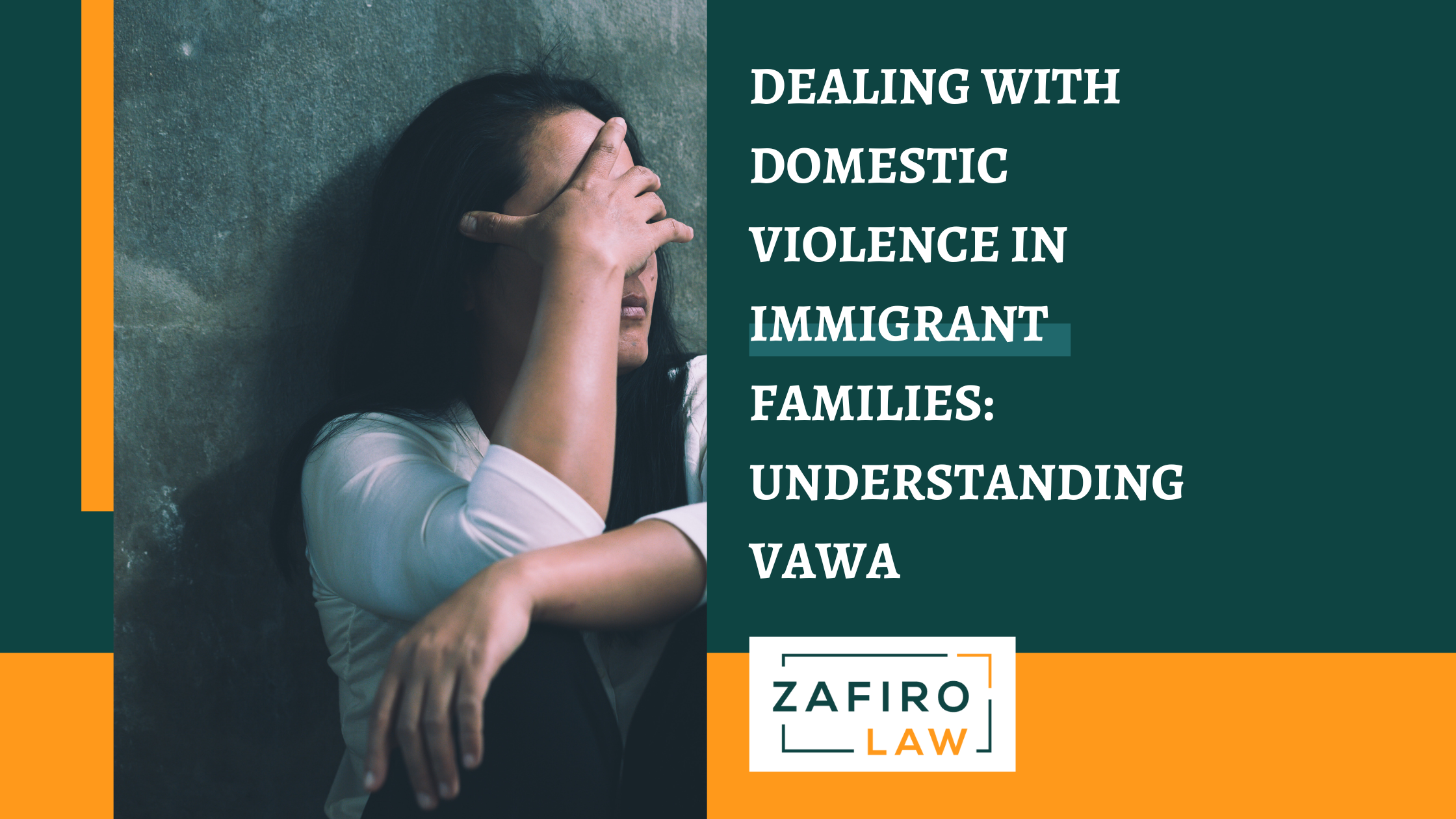Across the United States, countless immigrant families arrive each year for new beginnings, opportunities, and dreams of a brighter future. However, some face the dire challenges of domestic violence, an issue that knows no boundaries of nationality, culture, or social status. When the complexities of immigration intertwine with the shadows of abuse, navigating one’s rights and resources can seem daunting. Yet, these brave individuals must know they are not alone and that legal safeguards exist. At ZafiroLaw, we’re deeply committed to shedding light on these rights, ensuring that everyone, regardless of their origins, is empowered to lead a life free from fear and intimidation.
Domestic Violence’s Impact on Immigrant Families
Domestic violence transcends boundaries, affecting people of every demographic and nation. It encompasses physical, sexual, emotional, and psychological abuse between intimate partners, including stalking and threats. The emotional scars and physical wounds of domestic violence are only the beginning. For immigrant families, this trauma is magnified by financial challenges, social isolation, language barriers, and haunting fears of deportation. But understanding one’s rights can be the first step toward a safer tomorrow.
Your Rights and Resources as a Non-U.S. Citizen
Everyone, regardless of nationality or immigration status, is entitled to basic human rights and legal protection. Immigrant victims of domestic violence, in particular, have a robust set of legal rights in the U.S. akin to those of its citizens.
- Reporting Crime: Immigrants can and should report domestic violence to the police. This is vital in ensuring one’s safety, seeking justice, and laying the groundwork for further legal action.
- Seeking Protective Measures: Immigrant victims can approach courts to seek to restrain orders against their abusers. Such orders can help keep the perpetrators at bay, protecting the victims and their families from harm.
- Initiating Family Law Proceedings: Just like U.S. citizens, immigrants can initiate legal separation or divorce proceedings. They can claim custody of children, seek spousal maintenance (alimony), and uphold their rights in marital disputes.
- Immigration Benefits Tailored for Victims: The legal system recognizes the unique challenges faced by immigrant victims of domestic violence. As such, there are specialized immigration pathways to aid them:
- U visa: This is reserved for victims of grave crimes, including domestic violence. Qualifying individuals must have endured significant physical or mental trauma and be willing to collaborate with law enforcement in the crime’s investigation or prosecution.
- VAWA self-petition: The Violence Against Women Act (VAWA) permits certain immigrant victims of domestic violence to independently petition for a change in their immigration status, potentially achieving lawful permanent residency in the U.S. without relying on their abuser.
Available Resources
- National Domestic Violence Hotline: 1-800-799-7233
- RAINN: 1-800-656-HOPE
- National Immigrant Justice Center: (312) 660-1370
- Asian Pacific Institute on Gender-Based Violence: (415) 989-2432
- National Latin@ Network for Healthy Families and Communities: (202) 737-9141
ZafiroLaw Offers Our Support Too
If you are trapped in a similar situation, remember there’s assistance waiting. Seek guidance from the Violence Against Women Act (VAWA) on their website. You’re never truly alone in this battle. There are compassionate, dedicated professionals eager to guide you through these challenging times. At ZafiroLaw, we’re passionate about empowering you, providing peace of mind, and helping you reclaim your life. Schedule a consultation with us today, and let us be the beacon of hope in your journey to safety and legal clarity.


